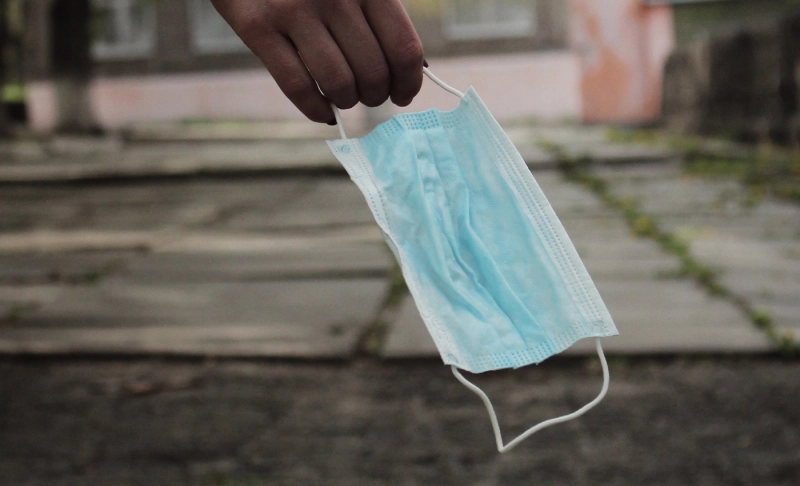By: Annie Priya
May 23 2022
Misleading: A U.K. study discovered that microplastics found in the lungs came from face masks.

The Verdict Misleading
Pre-pandemic research by the University of Hull has been misinterpreted to say microplastics found in human lungs were due to face masks.
Since the beginning of the COVID-19 pandemic, many people have been reluctant to wear masks for various reasons. After more than two years of the pandemic, there's still a lot of misinformation spreading worldwide. A Facebook post claimed that a U.K. study found microplastic fibers from face masks in the lower lungs of living human beings. The post includes a link to an article published by a website named Western Standard, which tries to explain the study. However, the study has been taken out of context. The Facebook post was based on research from the University of Hull, published on ScienceDirect on March 29, 2022. The data used in the research was collected from thoracic surgical procedures at Castle Hill Hospital. It was approved in 2012 (REC reference 12/SC/0474) as indicated in a document from the National Research Ethics Service and the Health Research Authority of the NHS, when the use of face masks was not yet widespread. The study analyzed human lung tissue samples via μFTIR spectroscopy – a method based on detecting the absorption or emission of electromagnetic radiation to detect and characterize any presence of microplastics. Microplastics are plastic particles between 1 μm and 5 mm, present in all environments, like marine, freshwater bodies, soil, food, and air. Researchers identified microplastics in 11 of the 13 samples analyzed. Of these, the most abundant types of identified microplastics were polypropylene or PP (23 percent), polyethylene terephthalate or PET (18 percent), and resin (15 percent). However, the study has not discussed the origin of the microplastics found in the lungs or suggested that face masks could be the origin of these microplastics. There is not enough scientific evidence to prove that face masks are a major source of microplastics in human lungs. However, certain studies indicate that face masks might contribute to microplastic inhalation. A study published by the University of Wisconsin in March 2022 is based on the amount, size, and composition of fibers collected from the use of both reusable and disposable face masks. The results presented are from one, four, and eight hours of continuous use of these masks while simulating human breathing. The result showed that particles from masks could be inhaled, and masks marketed as "reusable cotton face masks" released fibers consisting of cotton and polyester or polyethylene terephthalate (plastic). A study published in PubMed Central (PMC) in June 2021 states that "the inhalation of microplastics due to the wearing of masks has rarely been reported." Results of the study implied that wearing masks significantly reduces the inhalation risk of particles. Surgical, cotton, fashion, and activated carbon masks pose a higher fiber-like microplastic inhalation risk. In contrast, all masks generally reduce exposure when used for a specified time - less than four hours. N95 masks pose fewer fiber-like microplastic inhalation risks. However, simply wearing the masks and breathing through them does not pose this potential danger. Microplastics are found everywhere in the environment. It only becomes a threat when the plastic breaks down into fine particles or fibers and enters the environment. The benefits of wearing masks outweigh the risks of disease contraction. The U.S. Centers for Disease Control and Prevention (CDC) recommended using face masks during the COVID-19 pandemic. Even though they might contribute to some microplastic inhalation, there is limited research, and it is an insignificant issue compared to preventing COVID-19 infections.
The COVID-19 pandemic has given rise to a lot of potentially dangerous misinformation. For reliable advice on COVID-19, including symptoms, prevention, and available treatment, please refer to the World Health Organization or your national healthcare authority.


